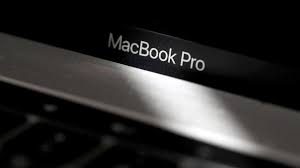Indian aviation regulator on Monday told flyers not to travel with older MacBook Pro laptops over concerns that their batteries may overheat and pose a safety risk. The Directorate General of Civil Aviation’s message to air passengers comes after Apple decided to recall a limited number of older generation 15-inch MacBook Pro laptops sold between September 2015 and February 2017.
“DGCA requests all air passengers not to fly with the affected models either as hand-baggage or checked-in baggage until the battery has been verified or certified as safe or replaced by the manufacturer,” the regulator said in a message.
Consequent upon the recall of a limited number of older generation 15-inch MacBook Pro laptops by M/s Apple Inc (sold primarily between September 2015 and February 2017) due to fears that their batteries may overheat and pose a safety risk, DGCA requests all air passengers not to fly with the affected models either as hand-baggage or checked-in baggage until the battery has been verified or certified as safe or replaced by the manufacturer.
In June, Apple announced a voluntary recall of its faulty 15-inch MacBook Pro laptops. According to the US Consumer Product Safety Commission (CPSC), there’s a chance that the devices sold between September 2015 and February 2017 could overheat and potentially cause fires. The iPhone-maker reportedly said it had received 26 reports of the laptop’s battery overheating, with as many as five consumers reporting minor burns and one suffering from smoke inhalation.
Nearly 432,000 potentially affected MacBook Pro units were sold in the US and 26,000 in Canada. Apple issued a similar replacement programme last year for the latest 13-inch Pros over issues related to battery expansion.
Apple issued a similar replacement programme last year for the latest 13-inch Pros over issues related to battery expansion.
MacBook Pro owners can use their laptop’s serial number to check on Apple’s website if the product is affected by the recall. The recall, however, does not affect other units or Mac notebooks, says Apple.
The United States Federal Aviation Administration (FAA) has also banned the affected laptops on all flights.
In 2016, battery fires in Samsung’s flagship smartphone Galaxy Note 7 caused the firm operating losses of some 6.1 trillion won ($5 billion).
However, batteries started exploding and devices caught fire while charging, forcing the South Korean giant to recall 2.5 million units worldwide in September.
The company encouraged Note 7 owners to swap their devices with new ones, but the replacement Note 7 devices too caught fire, leading to production being stalled in October. The Galaxy Note 7 device finally landed up in the junkyard.
Samsung Electronics acknowledged that faulty battery caused its flagship Galaxy Note 7 to catch fire, after discontinuing the fire-prone device.
A mix of thin separators between the positive and negative layers, abnormal squeeze in battery corners, abnormal bump in battery surface and absent insulating tape caused the Note 7s to explode and set on fire.




























 WhatsApp us
WhatsApp us